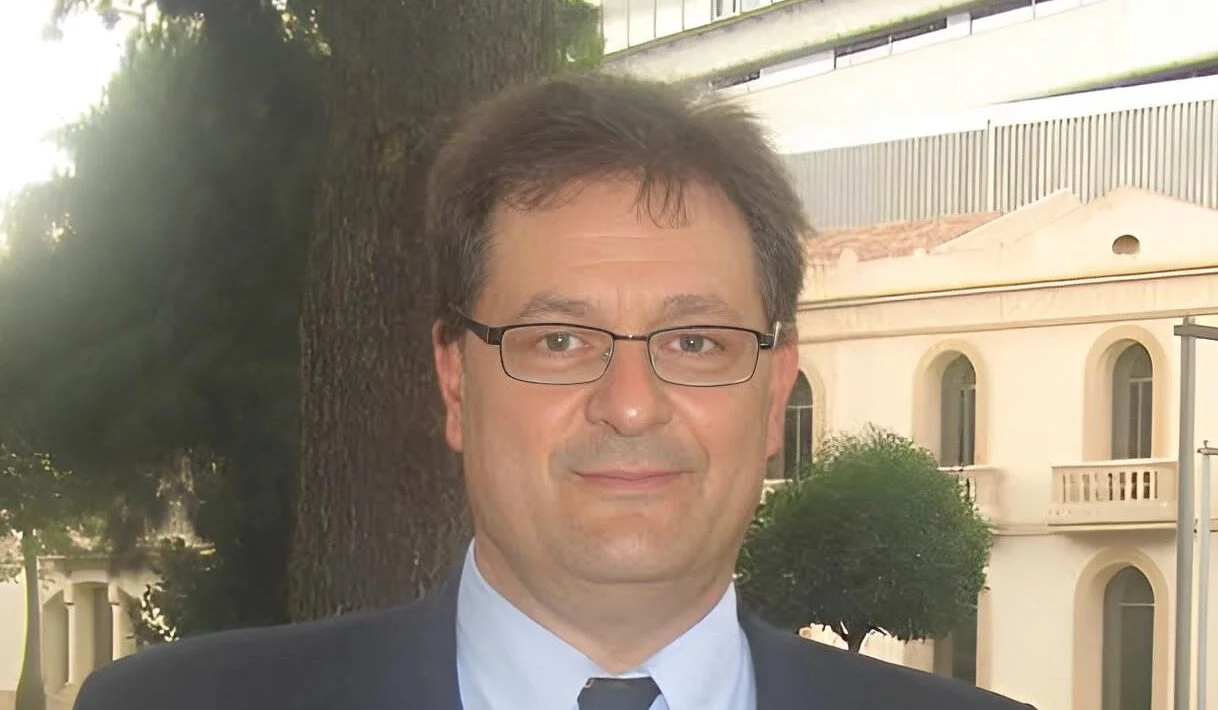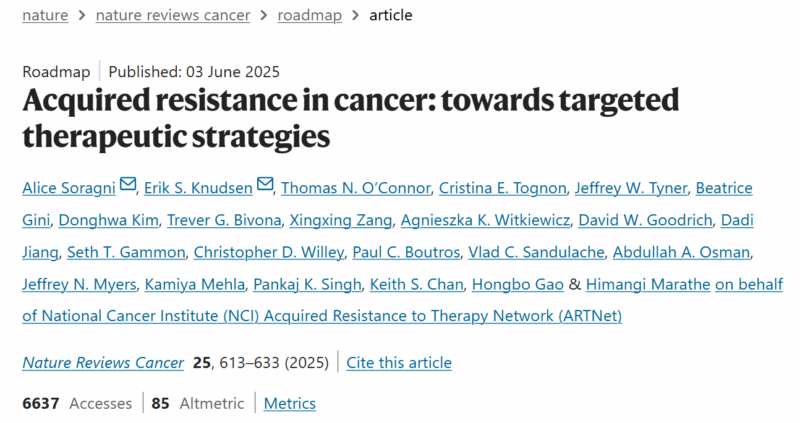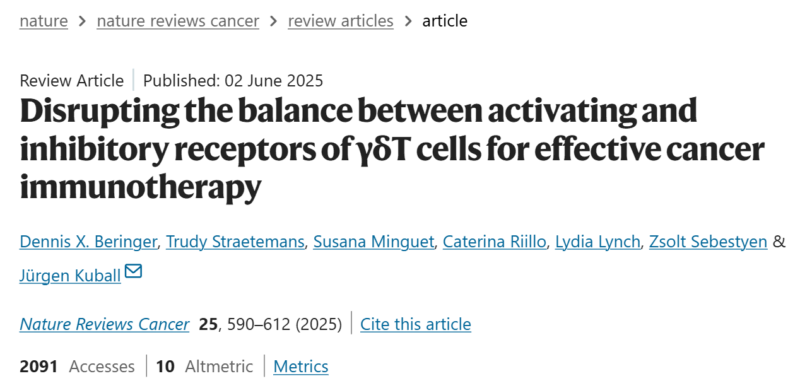
Miguel Bronchud: How Can New Molecular and AI Technologies Help Old Dreams Come True?
Miguel Bronchud, Co-Founder of Regenerative Medicine Solutions, shared a post on LinkedIn about two papers published in Nature Reviews Cancer:
“Cancer Drugs ‘Resistant Conundrums’?
How can new molecular and AI generative technologies help old dreams and hypotheses come true?
Unprecedented molecular spatial and time-resolved high-throughput platforms generate vast amounts of data, from which increasingly complex information can be extracted and analysed through artificial intelligence and machine learning-based approaches.
Nature Oncology has published a ‘decision roadmap’ on behalf of the National Cancer Institute (NCI) Acquired Resistance to Therapy Network (ARTNet).
Roadmap that theoretically outlines key mechanisms that underlie the acquisition of therapeutic resistance in cancer and explores diverse modelling strategies. Clinically relevant, tractable models of disease and biomarker-driven precision approaches are poised to transform the landscape of acquired therapy resistance in cancer and its clinical management.
These authors propose an ‘integrated strategy that leverages next-generation technologies to dissect the complexities of therapy resistance’, shifting the paradigm from reactive management to predictive and proactive prevention.
Something could also have happened three decades ago, but neither molecular technology (especially spatial genomics and epigenetics), nor IT or artificial intelligence models were then ready to be developed?
‘Principles of Molecular Oncology,’ edited by Miguel Bronchud, in three editions 2000-2008, was a pioneering comprehensive resource exploring the molecular basis of cancer and its implications for diagnosis and treatment. The book emphasizes that cancer is a ‘disease process’ involving key regulatory pathways and focuses on how understanding these pathways can lead to more effective prevention, early diagnosis, prognosis, and treatment strategies.
The book (Humana Press, first edition NJ 2000; Springer NY third edition 2008) delved into various molecular markers found in cancer, including genetic and epigenetic changes, and discusses their significance in cancer development and progression.
It examined (right before the classic paper on the ‘Hallmarks of Cancer’ were first published), cancer as a complex set of diseases consequent upon altered regulatory pathways, ‘the new biochemistry’, such as growth factor signaling pathways and cyclin-dependent kinase pathways, new immune system mechanisms or oncogene and tumor suppressor mechanisms, and explored how these pathways can be targeted for therapeutic interventions.
The book also looked at future directions in molecular oncology, including new therapeutic targets, targeted therapies, and the potential of personalized medicine based on an individual’s molecular profile.
Title: Acquired resistance in cancer: towards targeted therapeutic strategies
Authors: Alice Soragni, Erik S. Knudsen, Thomas N. O’Connor, Cristina E. Tognon, Jeffrey W. Tyner, Beatrice Gini, Donghwa Kim, Trever G. Bivona, Xingxing Zang, Agnieszka K. Witkiewicz, David W. Goodrich, Dadi Jiang, Seth T. Gammon, Christopher D. Willey, Paul C. Boutros, Vlad C. Sandulache, Abdullah A. Osman, Jeffrey N. Myers, Kamiya Mehla, Pankaj K. Singh, Keith S. Chan, Hongbo Gao, Himangi Marathe
You can read the Full Article in Nature Reviews Cancer.

Similarly, in recent years, advanced single-cell analysis techniques and comprehensive protein–protein interaction studies have transformed our understanding of γδT cells and their receptors. These immune cells are highly promising for immune therapies for the following reasons:
- Unlike αβ T cells, γδ T cells can recognize and kill tumor cells without needing to be presented by MHC molecules, making them effective against a broader range of cancer types.
- Direct cytotoxicity: γδ T cells can directly kill tumor cells through the release of cytotoxic molecules like perforin and granzymes.
- Cytokine production: They can secrete various cytokines, such as interferon-gamma (IFN-γ) and tumor necrosis factor-alpha (TNF-α), which can further activate and enhance the immune response against cancer.
- Modulation of the tumor microenvironment: γδ T cells can influence the tumor microenvironment by interacting with other immune cells, potentially creating a more favorable environment for antitumor immunity.
- Potential for CAR-T cell therapy? Even in solid tumors?? γδ T cells can be engineered with chimeric antigen receptors (CARs) to target specific tumor antigens, offering a potential avenue for personalized cancer therapy.
This insight has revealed new opportunities and challenges in harnessing γδT cells for therapeutic purposes. In this context, the same Nature Oncology J as above very recently discuss the latest findings in γδT cell biology, with a special focus on their role in cancer immune therapies.
Beringer, D.X., Straetemans, T., Minguet, S. et al.Disrupting the balance between activating and inhibitory receptors of γδT cells for effective cancer immunotherapy. Nat Rev Cancer 25, 590–612 (2025).
Authors explore strategies to overcome tolerance and shift the balance of γδT cells and their receptors towards antitumour efficacy, which has the potential to successfully translate into various engineering approaches in cancer immunotherapy.
- Vγ9Vδ2 γδT cells and Vδ2– γδT cells have distinct transcriptomic profiles and different therapeutic potential in cancer therapy.
- The unique γδT cell receptor–CD3 complex structure and downstream signalling pathways have implications for the design of effective therapeutics.
- Shifting strategies?”
Title: Disrupting the balance between activating and inhibitory receptors of γδT cells for effective cancer immunotherapy
Authors: Dennis X. Beringer, Trudy Straetemans, Susana Minguet, Caterina Riillo, Lydia Lynch, Zsolt Sebestyen and Jürgen Kuball
You can read the Full Article in Nature Reviews Cancer.

More posts featuring Miguel Bronchud.
-
Challenging the Status Quo in Colorectal Cancer 2024
December 6-8, 2024
-
ESMO 2024 Congress
September 13-17, 2024
-
ASCO Annual Meeting
May 30 - June 4, 2024
-
Yvonne Award 2024
May 31, 2024
-
OncoThon 2024, Online
Feb. 15, 2024
-
Global Summit on War & Cancer 2023, Online
Dec. 14-16, 2023
